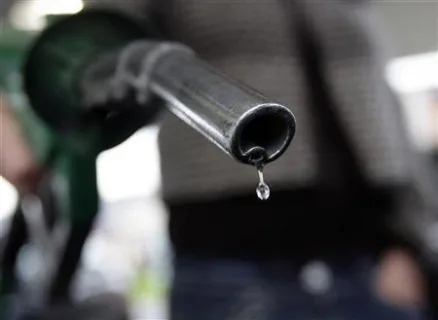Marketers Persist with Fuel Imports
Despite the operational launch of two major refineries in Nigeria, the Dangote Petroleum Refinery and the Port Harcourt Refining Company, oil marketers have continued to import fuel.
Between September 11 and December 5, 2024, a total of 2.3 billion litres of petrol were imported, raising questions about local production capacity and cost-effectiveness.
Join our WhatsApp ChannelDocuments from the Nigerian Ports Authority revealed that in the past three days alone, marketers brought in 52,000 metric tonnes of petrol, equivalent to approximately 68.74 million litres. This ongoing reliance on imports contrasts sharply with earlier promises by marketers to halt petrol imports in favour of local supply.
Domestic Refinery Capacity and Pricing Challenges
The Dangote Refinery, with a capacity of 650,000 barrels per day, started production in September 2024. The Port Harcourt Refinery, producing from an older facility with a capacity of 60,000 barrels per day, followed suit earlier this month.
However, despite these developments, local output has yet to meet the nation’s demand. High costs have also contributed to marketers’ decisions to continue importing. According to a representative of the Major Oil Marketers Association of Nigeria (MOMAN), “It is not just about production. Pricing and logistics remain critical issues.”
Federal Government Encourages Local Purchase of Fuel
In October 2024, the Federal Government issued a directive allowing marketers to negotiate directly with the Dangote Refinery. Previously, the Nigerian National Petroleum Company Limited (NNPCL) acted as the sole off-taker of Dangote’s products.
The Independent Petroleum Marketers Association of Nigeria (IPMAN) has since signed agreements with the Dangote Refinery, while discussions with other associations, such as the Petroleum Products Retail Outlets Owners Association of Nigeria (PETROAN), are ongoing. PETROAN’s National President, Billy Gillis-Harry, stated, “We plan to rely on local refineries for the next six months to ease pressure on imports.”
READ ALSO: Nigeria’s Inflation Rate Hits 33.88% In October Following Fuel Price Spike
Recent Importation Details of fuel
Despite these assurances, evidence suggests marketers are reluctant to end imports. On December 3, 2024, a vessel carrying 15.864 million litres of petrol docked at the Apapa Port in Lagos. The following day, another ship delivered 26.44 million litres to the Tin Can Port, also in Lagos. Today, another 26.44 million litres are scheduled to arrive at the Calabar Port.
Industry analysts argue that the continued importation undermines efforts to stabilize Nigeria’s downstream oil sector.
Stakeholder Reactions and Ongoing Dialogues
In a meeting convened by NNPCL and the Nigerian Midstream and Downstream Petroleum Regulatory Authority (NMDPRA), major marketers expressed confidence in local refineries but emphasised challenges with consistency in supply. A senior official at the meeting remarked, “Discussions are ongoing, but we cannot fully abandon imports until we see reliable outputs from these refineries.”
Meanwhile, MOMAN members disclosed that over 140 million litres had already been sourced locally in the last 10 weeks, signalling a gradual shift towards local production. However, they noted that achieving self-sufficiency would require sustained investments in refinery capacity and infrastructure.
Financial Implications of Importation
Between October and November 2024, NNPCL and private marketers spent approximately $1.8 billion to import fuel products, including 1.5 million metric tonnes of petrol and significant volumes of diesel and aviation fuel.
An official from NNPCL explained, “The cost of imports remains high, and this adds pressure on the foreign exchange market. Our goal is to reduce this burden through increased local refining.”
Future Outlook
The reliance on fuel imports highlights structural issues in Nigeria’s oil sector, even as local refining gains momentum. Industry experts caution that without addressing logistics, pricing, and policy gaps, achieving full self-reliance may remain a distant goal.
Emmanuel Ochayi is a journalist. He is a graduate of the University of Lagos, School of first choice and the nations pride. Emmanuel is keen on exploring writing angles in different areas, including Business, climate change, politics, Education, and others.


















Follow Us